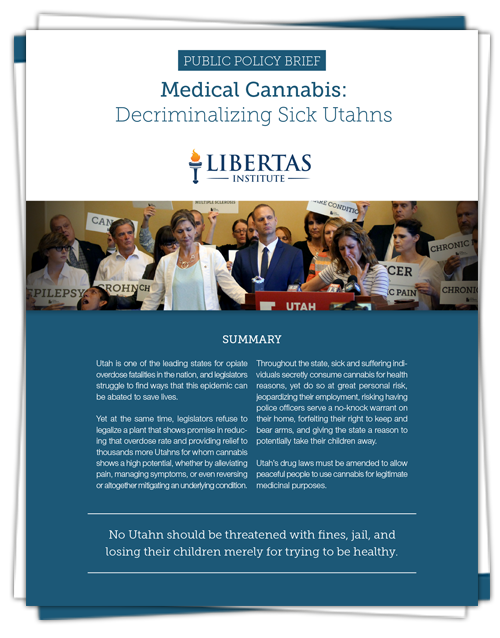Authored by Connor Boyack, President
 Utah is one of the leading states for opiate overdose fatalities in the nation, and legislators struggle to find ways that this epidemic can be abated to save lives.
Utah is one of the leading states for opiate overdose fatalities in the nation, and legislators struggle to find ways that this epidemic can be abated to save lives.
Yet at the same time, legislators refuse to legalize a plant that shows promise in reducing that overdose rate and providing relief to thousands more Utahns for whom cannabis shows a high potential, whether by alleviating pain, managing symptoms, or even reversing or altogether mitigating an underlying condition.
Throughout the state, sick and suffering individuals secretly consume cannabis for health reasons, yet do so at great personal risk, jeopardizing their employment, risking having police officers serve a no-knock warrant on their home, forfeiting their right to keep and bear arms, and giving the state a reason to potentially take their children away.
Utah’s drug laws must be amended to allow peaceful people to use cannabis for legitimate medicinal purposes.




